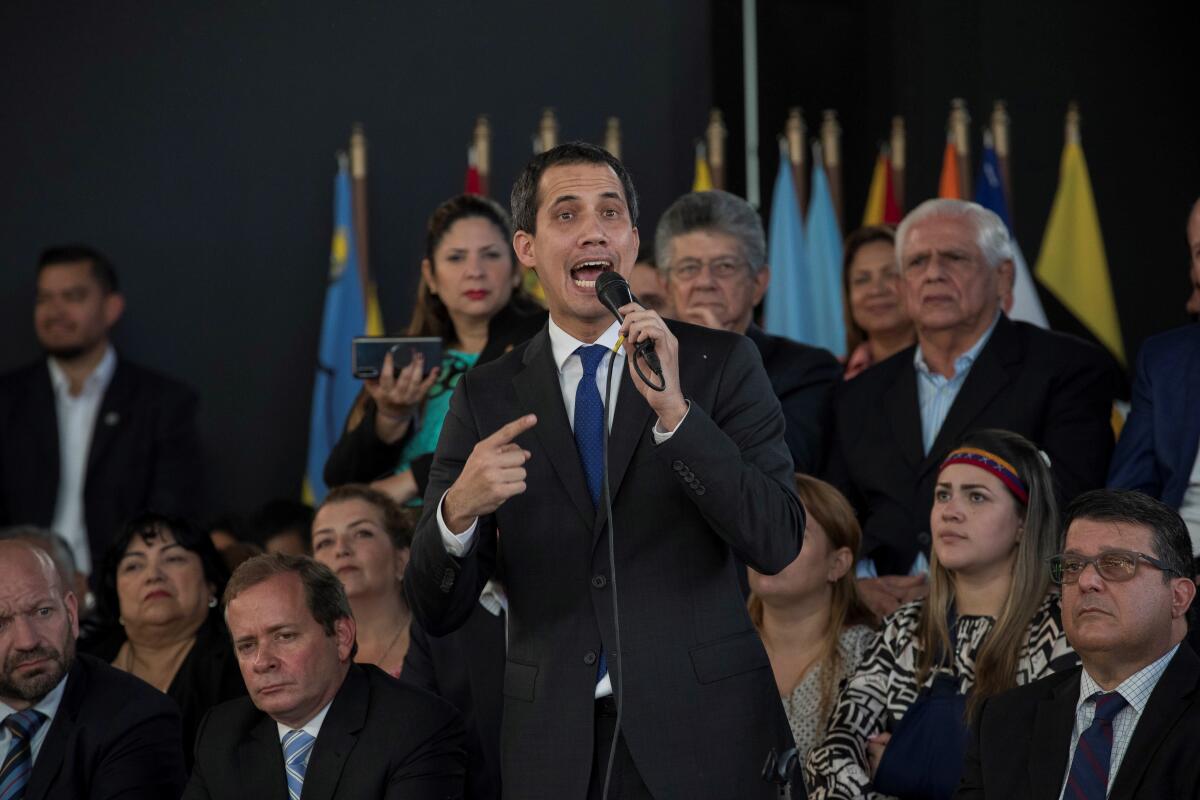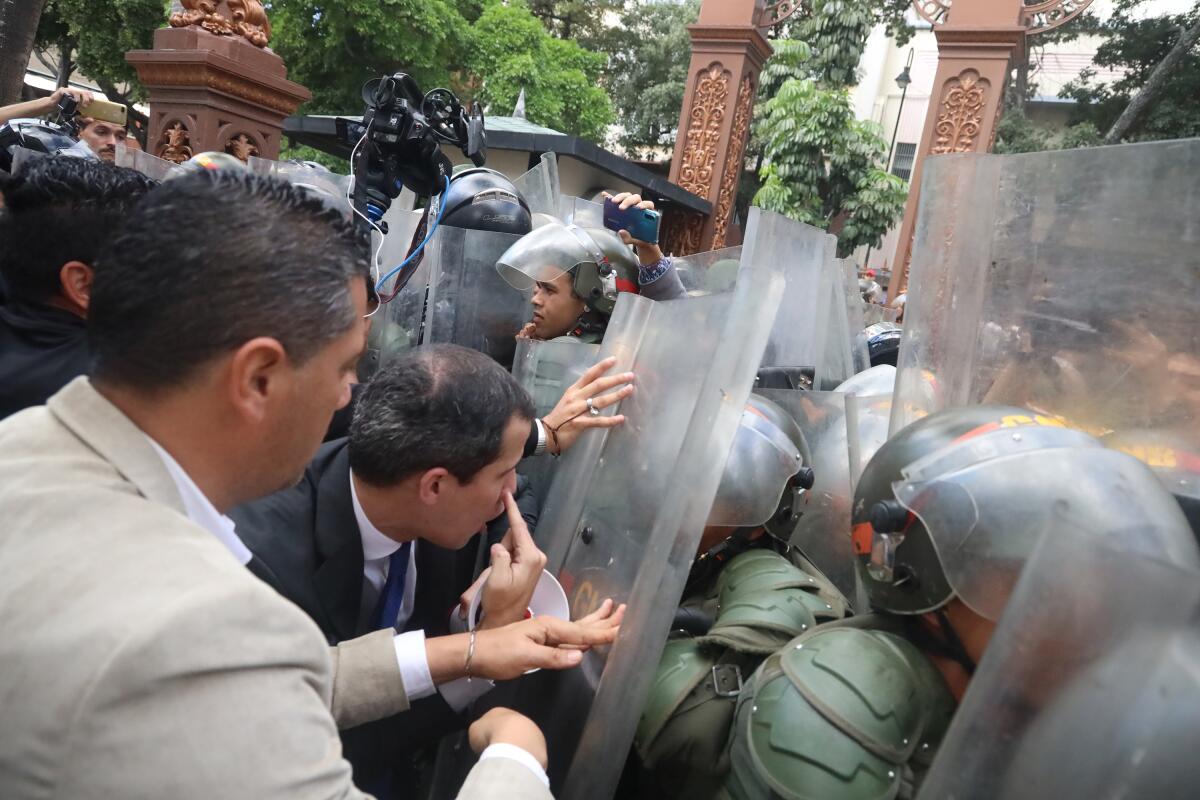Venezuela opposition leader Juan Guaido takes new oath amid chaos

- Share via
CARACAS, Venezuela — The politician whom the U.S. and dozens of other nations recognize as the rightful president of Venezuela on Tuesday shoved his way through a wall of armed national guardsmen to regain control of the National Assembly building where he serves and to take an oath as its leader.
“In the name of those who have no voice, the mothers who weep, the political prisoners; in the name of Venezuela, I swear to fulfill the duties of acting president,” opposition leader Juan Guaido said Tuesday as he took the oath of office.
Those in attendance sang the national anthem — in the dark because electricity to the building had been cut.
Guaido and dozens of fellow legislators who oppose President Nicolas Maduro succeeded where on Sunday they had failed in spectacular fashion.
Images from the weekend showed the lanky politician in a royal blue suit attempting unsuccessfully to scale the outer fence to enter the National Assembly building, over raucous security forces, for a crucial vote on who would run the law-making body regarded by many as the last democratically chosen institution in the beleaguered country.

Guaido and the opposition legislators who support him held their own election at a different location Sunday, and 100 members of the 167-person National Assembly chose Guaido, 36, for a second term as “interim president” as an alternative to Maduro.
“This is a show of what can happen when we are united,” Guaido said Tuesday at the National Assembly.
The goal of removing Maduro, who is backed by Cuba and Russia and U.S. officials say is engaged in drug-trafficking, money-laundering and other crimes, has been a centerpiece of the Trump administration’s foreign policy. Yet after a year of bruising economic sanctions and diplomatic isolation, Maduro seems to continue to have a strong grip on power, despite a massive humanitarian collapse throughout the once-rich country.
Maduro refuses to recognize the National Assembly and created a parallel constituent assembly made up of loyalists.
The turmoil this week has illustrated how ineffective U.S. policy has been, and comes at a time the administration is increasingly enmeshed in volatile crises in the Middle East, North Korea and elsewhere.
Elliott Abrams, the U.S. representative for Venezuela, welcomed the reelection of Guaido, whom Washington first recognized a year ago along with several dozen other countries. Abrams said U.S. officials remain undaunted and will continue to put economic pressure on the Maduro government through additional sanctions and find ways to get humanitarian aid to ordinary citizens.
Several million Venezuelans have fled their homeland for neighboring countries and the U.S.
Abrams acknowledged one mistake in U.S. planning.
“We underestimated the importance of the Cuban and Russian support for the regime, which has proved, I think, to be the two most important pillars of support for the regime and without which it wouldn’t be there, it wouldn’t be in power,” he told reporters in Washington on Monday.
He also praised Guaido for mustering the support of 100 lawmakers, despite what he described as Maduro’s efforts to take away votes through bribery and intimidation.
Guaido, speaking later Tuesday at a news conference, called for three days of protests against Maduro’s socialist government starting Thursday.
“It’s time to stand up and to stand up with force,” Guaido said.
When Guaido and supporters started their crusade a year ago, they managed to rally massive street protests. But, after harsh repression from Maduro’s security forces, the demonstrations grew smaller over time. Marches this week will test the stamina of the opposition movement and where it stands now.
Special correspondent Mogollon reported from Caracas and Times staff writer Wilkinson from Washington.
More to Read
Sign up for Essential California
The most important California stories and recommendations in your inbox every morning.
You may occasionally receive promotional content from the Los Angeles Times.











